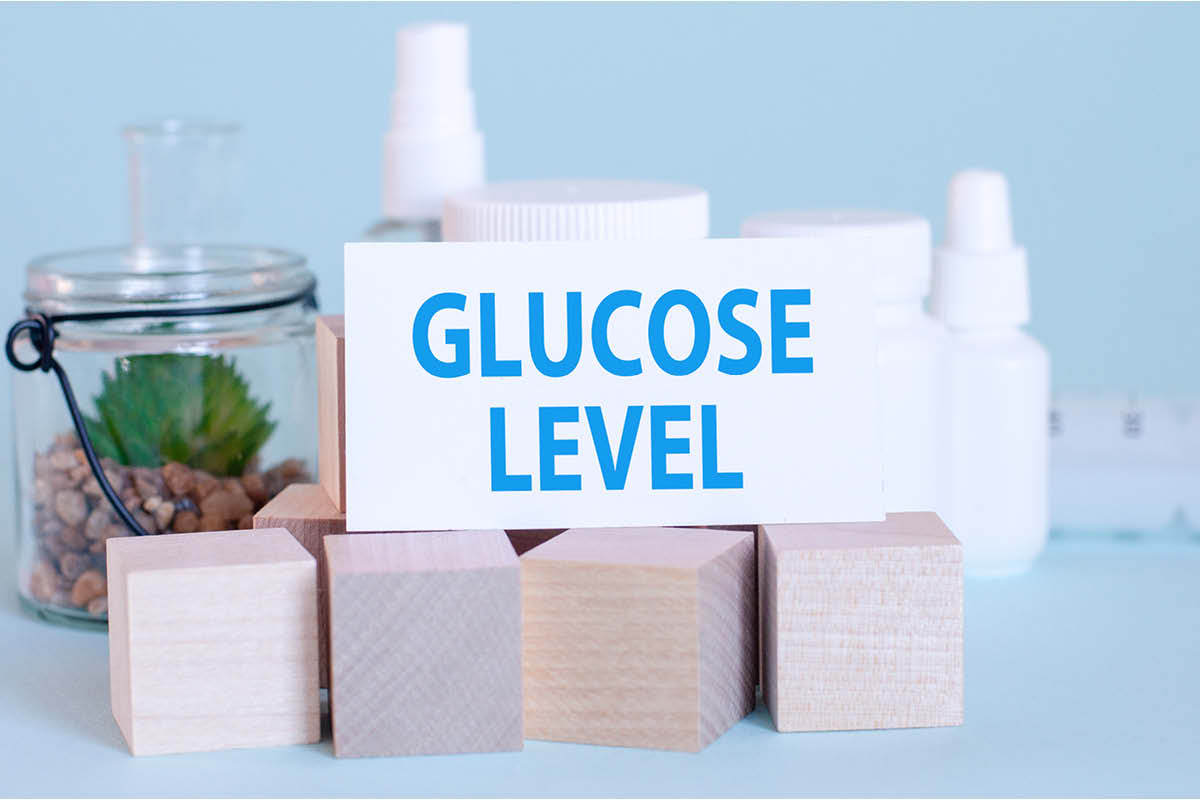If you often feel fatigued or experience cravings, your blood glucose levels could be to blame. French biochemist, Jessie Inchauspé, discusses this in her book, Glucose Revolution. She says that although we typically associate glucose regulation with diabetes, monitoring our blood-sugar levels is something we could all benefit from.
‘Glucose’ and ‘blood sugar’ are used interchangeably, but both refer to your body’s main molecule of energy. In short, your body breaks down all sugars and starches into glucose. Healthy foods that are rich in fibre slow the release of glucose into the blood, but when you eat sugary, processed foods that are low in fibre, your body becomes overwhelmed with glucose. Your body reacts to this increase in blood sugar by releasing insulin, which then results in your blood sugar falling faster. This is known as a glucose spike, which if repeated over a prolonged period of time can increase your risk of prediabetes, type 2 diabetes and polycystic ovary syndrome (PCOS).
Even in the short term, glucose spikes can cause energy crashes, brain fog, cravings and a need to eat more regularly. Simple carbohydrate sources containing pure sugar, honey and sweeteners, including cakes, pastries and processed foods, are the main culprits, and get broken down into glucose much faster than more complex carbohydrates like wholegrain bread or rice. However, while it can be helpful to reduce your intake of simple carbohydrate sources, ‘Glucose Goddess’ Jessie argues that you don’t need to cut out these foods completely. Instead, she recommends her tried and tested glucose ‘hacks’, which aim to balance your blood sugar without drastically changing your diet. Here are a few to get you started.
Start your day with a savoury breakfast
Have you ever noticed that when you treat yourself to pancakes or waffles for breakfast, you’re hungry again by mid-morning? This is because the food you eat in the morning has an impact on your glucose levels for the rest of the day. For this reason, Jessie advises starting your day with a savoury or low-sugar meal. This can be a tricky one to implement, as so many breakfast options are packed with sugar – including most cereals. Some satisfying options to try include eggs, Greek yoghurt, a protein powder shake, peanut butter on wholemeal toast, or a plate of meat and eggs.
Eat your vegetables first
When it comes to glucose regulation, the order in which you eat your food can make a big difference. Beans, leafy greens and vegetables such as broccoli and carrots are all great sources of fibre, which break down slowly in the digestive system. Eating fibre-rich vegetables before your carbohydrates slows down the speed at which you digest starches, meaning that glucose trickles into the bloodstream much slower than if you had eaten the same foods in reverse order. Ideally, you should aim for a one-to-one ratio, but some vegetables are better than none. If you don’t fancy cooking an extra dish, why not try snacking on some baby carrots and hummus while you cook?
In the same vein, Jessie also claims that saving sweeter foods until the end of a meal, as opposed to snacking on sugary treats throughout the day, will further flatten a glucose spike.
Move your body after eating
Taking a short walk or hitting the gym after a big meal, particularly one high in carbohydrates and sugar, is another way of halting the accumulation of glucose in the body. Spending just ten minutes doing any exercise you enjoy can make a difference – whether that’s strength training, yoga, running or a simple stroll.
Incorporate vinegar into your diet
Vinegar slows down the breakdown of starches into glucose and encourages your muscles to soak up glucose as it arrives in your bloodstream. By doing so, it’s a handy way of minimising a potential glucose spike caused by a carbohydrate-rich meal.
Any vinegar will work, Jessie claims, but apple cider vinegar might be the most palatable. You could try mixing a tablespoon of vinegar in hot or cold water and drinking it twenty minutes before eating, or alternatively adding vinaigrette to your salad.







